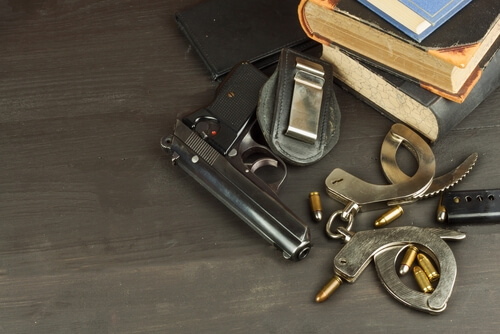By now you’ve probably caught an episode or two of A&E’s 60 Days In featuring participants masquerading in jail in order to provide insights on how to improve operations for administration.
Incarceration, even for a brief period, can be a daunting and unfamiliar experience. The idea of spending even 24 hours in jail before a Fort Worth bail bond goes into play evokes anxiety and uncertainty. Let’s take a journey through the various aspects of a 24-hour jail stay so you know what you or your loved one can expect beyond what the show on A&E reveals.
Intake and Processing
Stepping into the world behind bars demands adaptation and resilience. The initiation process, commonly known as intake, marks the beginning of your time in a cell. This includes a formal orientation of the facility and its rules. During the intake process, there is also a physical and mental health screening involved.
This meticulous procedure is intended to ensure the safety and security of everyone in the facility — including you, your fellow inmates and the dedicated staff.
Aside from a medical screening, intake includes establishing your identity during your stay at the facility, a physical search of your person and belongings, relinquishing your belongings (i.e. wallet, cell phone, jewelry), and fingerprint collection.
Cell Assignment
One of the defining aspects of life behind bars is your living arrangements. After intake, you will be assigned to a cell or holding area where you’ll spend your stay. Specific accommodations vary based on the jail’s operational protocols and availability of space.
Communal Cells
In some correctional facilities, communal cells are the norm. These spaces house multiple inmates together, creating an environment where camaraderie and social interactions can flourish. While the idea of sharing a living space with others may initially seem daunting, it often becomes an unexpected source of support and solace.
Single Cells
In contrast to communal cells, single cells offer a different experience behind bars: solitude. These cells provide individuals with their own private space, granting a sense of privacy and personal space. For some, this solitude can be a source of relief, allowing for introspection and personal reflection.
Routine and Regulations
Incarceration introduces a new way of life governed by a structured schedule within the walls of a correctional facility. This structured routine plays a crucial role in maintaining order and ensuring the well-being of all individuals involved.
Life behind bars operates on a carefully designed and enforced schedule. Each day follows a routine: designated times for meals, recreational periods, and access to essential amenities like showers and phone calls. Adhering to this schedule ensures the facility’s smooth functioning and contributes to the overall well-being of those within.
Compliance with the regulations of the correctional facility is of utmost importance. These guidelines are in place to maintain order, protect individuals’ rights and ensure the safety of both inmates and staff.
By adhering to these rules, you contribute to the creation of a peaceful environment and minimize the potential for conflicts with fellow inmates or correctional officers.
Inmate and Guard Interactions
Throughout your time in jail, you will encounter individuals from various backgrounds, each with a unique story and perspective. Some may extend friendship, support and camaraderie, fostering connections to provide solace in this environment. Bonding with like-minded individuals creates community and offers emotional support during your incarceration.
It’s also important to acknowledge that not all interactions may be positive. Some individuals may exhibit confrontational behavior or have conflicting interests. To ensure your safety and well-being, approach all interactions with a respectful attitude and avoid engaging in conflicts. Maintaining personal boundaries and avoiding involvement in potentially harmful situations can help you navigate the complex social dynamics in the correctional facility.
Correctional Officers
Correctional officers (COs) play a vital role in maintaining order and security. They are responsible for enforcing rules and regulations, conducting routine checks and helping when needed. They act as a crucial link between inmates and the administration, ensuring the facility operates smoothly and safely.
During your time in jail, expect periodic interactions with COs. These interactions may occur during routine checks, when seeking assistance or during various activities within the facility. You want to approach these interactions with respect and compliance, as they help create a harmonious and secure environment for everyone.
Mental Effects
Even spending a single night in jail means a profound loss of personal freedom, in which we face restricted movement and limited access to common areas and recreational facilities. Boredom becomes a constant companion while the mental and emotional strains of being separated from our loved ones and society take their toll. However, there are opportunities for personal growth and reflection even within these challenging circumstances.
Unlocking the Door to Freedom
In moments of uncertainty and distress, the support of a reliable bail bond service can make a world of difference. If you or a loved one are in need of assistance, trust the expertise and commitment of Big Bubba’s Bail Bonds. Our dedicated team is available 24/7 to provide guidance and help secure your release from jail. Contact us today to explore your options and pave the way toward regaining your freedom.


